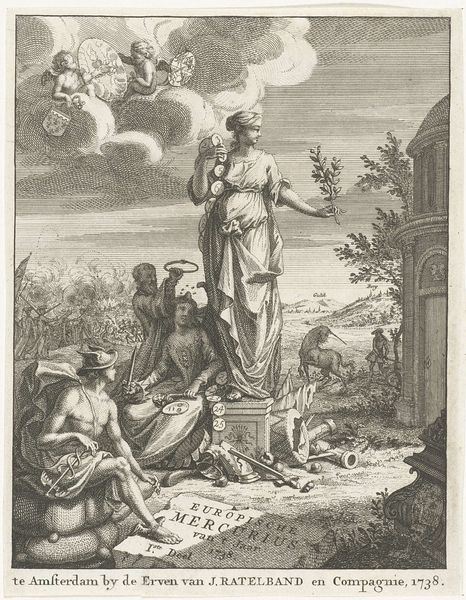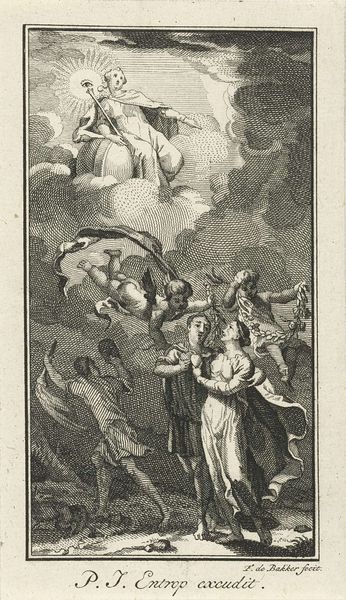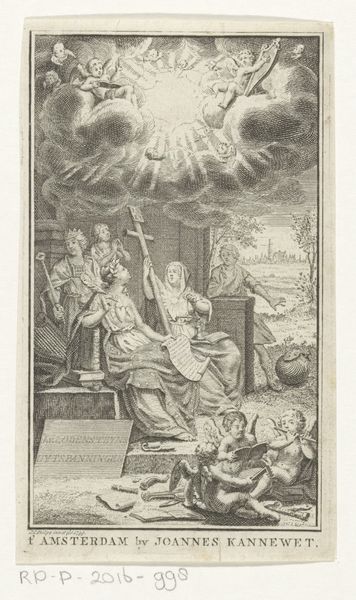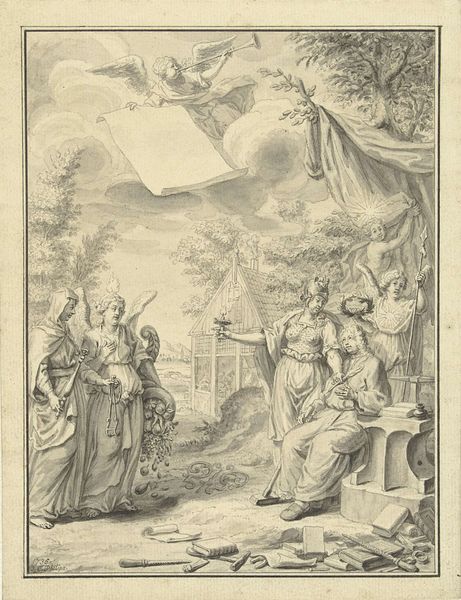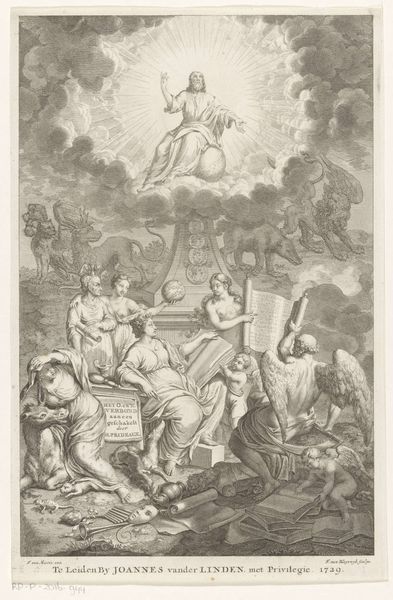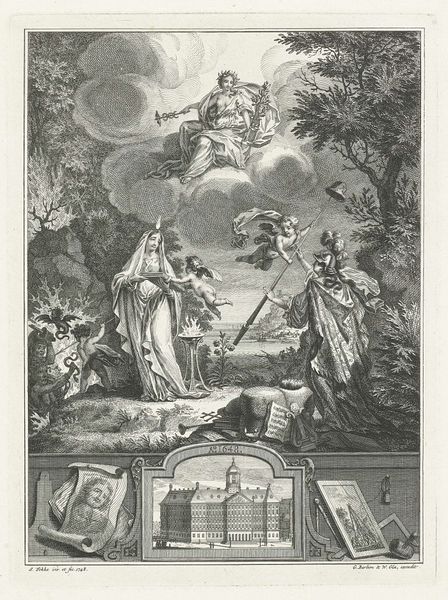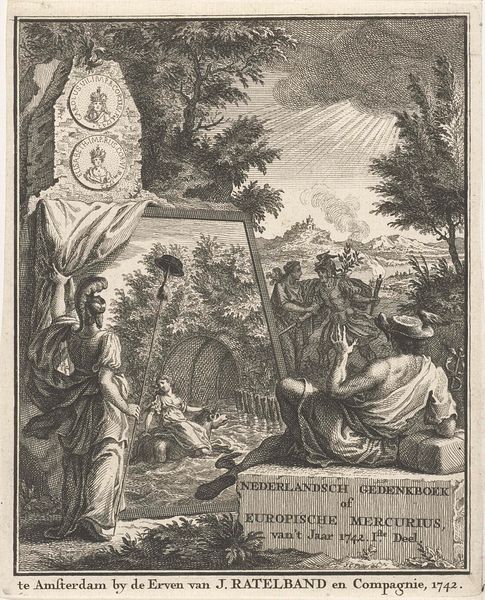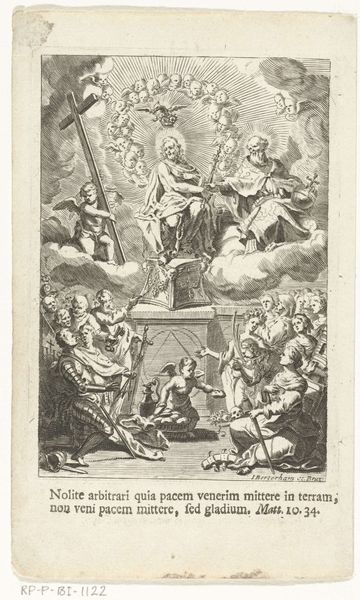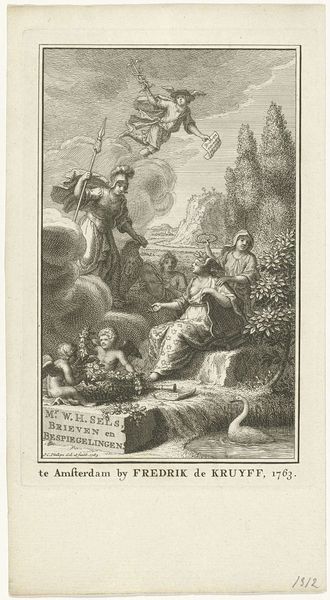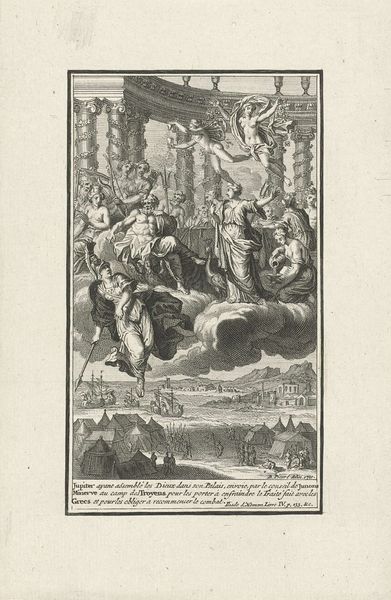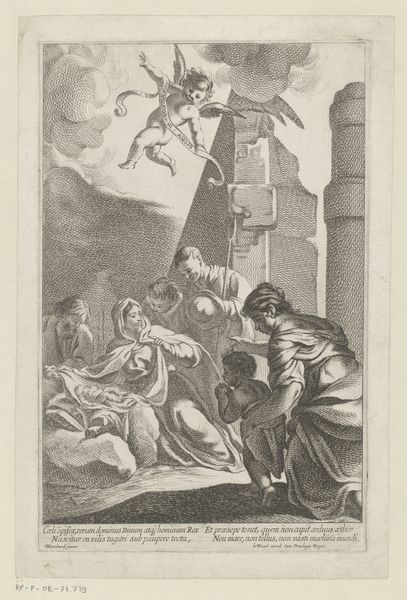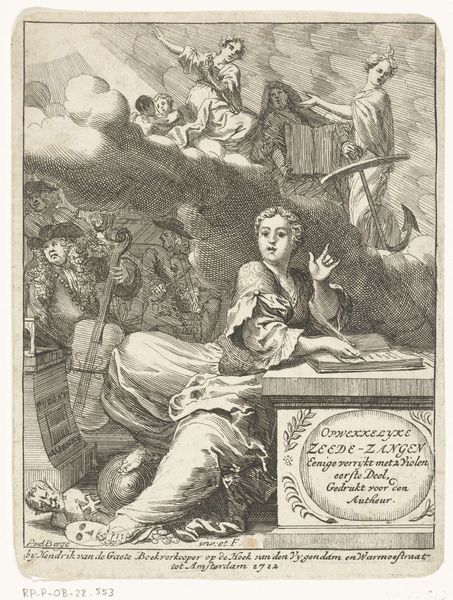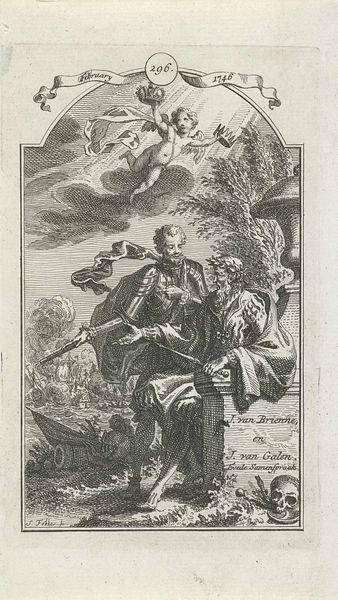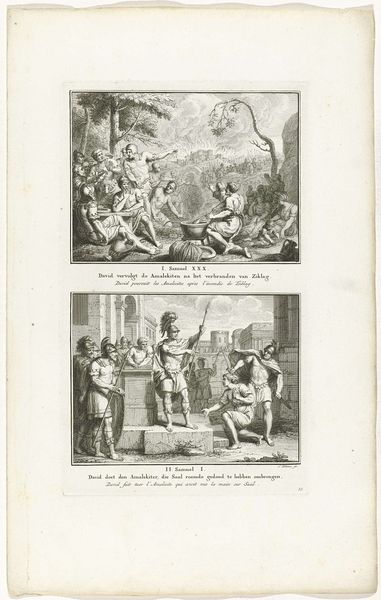
print, engraving
#
allegory
#
baroque
# print
#
old engraving style
#
figuration
#
history-painting
#
engraving
Dimensions: height 181 mm, width 134 mm
Copyright: Rijks Museum: Open Domain
Jan Caspar Philips created this print, "Minerva overhandigt de schrijfveer aan Adriaan de Kramer," sometime between 1700 and 1775 using etching. It's an allegory praising the work of Adriaan de Kramer. At first glance, it seems to celebrate knowledge, but let's dig a bit deeper. Adriaan de Kramer is literally being handed a quill by Minerva, the Roman goddess of wisdom. Angels above announce "All the Works of Adriaan de Kramer", a grand, almost propagandistic gesture. But I can't help but wonder, what kind of power dynamics are at play when divine wisdom is bestowed upon an individual? During this time, the Dutch Republic was a major center of trade and culture, but also a society grappling with strict social hierarchies. Consider how an artist like Philips might navigate these waters. Is this image simply a tribute, or does it reflect a negotiation of status and patronage? How did Kramer’s work influence or challenge societal norms? How might the common person have viewed such an idealized portrayal? This image really speaks volumes about the relationship between art, power, and the construction of fame.
Comments
No comments
Be the first to comment and join the conversation on the ultimate creative platform.
